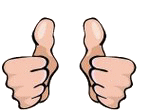 I'm continually amazed by the sheer lunacy of the human race. We live in a fabulous planet; full of beauty and spectacle and life; and we spend so much of our time deciding what is allowed, what is normal and what age people should be to handle certain aspects.
I'm continually amazed by the sheer lunacy of the human race. We live in a fabulous planet; full of beauty and spectacle and life; and we spend so much of our time deciding what is allowed, what is normal and what age people should be to handle certain aspects.The government is going to and/or has already started stickering books with age recommendations.
We have a long tradition of protecting children from the media, and I am all for it. You can argue where the lines are, but I believe it right that small children shouldn't be able to watch violence or sex on film, because it can seem like real life to them. They'd get scarred and we'd have one more slightly warped individual in the world.
But, and this is a capital-letter BUT, a book is a book is a book! Words are indistinguishable symbols to anyone who does know the semantics. We're talking science here. A child can read the word penis and would have no image to call to mind. And so, the world is blunt. Harmless. A word!
However, let us imagine for a moment that a book isn't a collection of harmless symbols. Let us say, for example, that a book called Book X contains lexical choices that may scar poor little ten-year old Jimmy.
We'd also have to imagine that this book has been placed in the children's section of a bookstore and that Jimmy had parents stupid enough to not look at the dust cover before making their purchase. Let us imagine all this to be true.
So, now, what age does Jimmy have to be? Let's say it contains a character dying; how old does Jimmy have to be to truly understand that people sometimes die and sometimes it isn't fair. I'm 21, and I still haven't come to terms with this.
At the moment it is age guidelines, but we are steps away from books being restricted by laws. So now, we're banning The Lion, the Witch and the Wardrobe because people die. We ban The Hobbit. People croak it in Harry Potter and A Series of Unfortunate Events, and Goodnight Mister Tom is all about war. All classics, all found in the 8-11 section at Waterstones, and all under threat of having high age restrictions placed on them because children might be moved by them.
Since when has a book making someone sad been a bad thing? Since when have we tried to stop children learning more about the world?
A book provides a safe place for a child to explore the world. A fictional character dying, whilst sad, provides a nice starting place for discussion about the nature of death. I would rather that a child of mine was sad for a week than ignorant for a lifetime.
It is also quite intriguing to see that the chief things that any government tries to censor are the things most natural to human existence: sex and death. To hide any of this is to make it seem unnatural and wrong, and children grow up with a skewed perception.
And since when, as these guidelines seem to be suggesting, have all children been at the same stage of intelligence? It is false that there is a universal age in which to talk about some things and not others. One twelve-year-old might be able to grasp adult plots, whilst a second has trouble understanding the dilemmas of Billy Blue Hat.
To group them all pulls the bright children back and puts pressure on the ones with difficulties. The only children that become unaffected are the average ones, and why are we trying to build a society around being average?
But, you may cry, no-one cares about the restrictions on books. They're just guidelines. And with the latter point you are right.
But I work in a bookstore and I see that people DO care. They DO look at the age guidelines and make decisions based on them, as opposed to the more sensible option of asking any of the very knowledgeable staff members. Because, hey, we're just trying to sell them a book; what do we know?
We have had people who have complained that a book contains the word dead on the front cover in a children's section. This would be funny if it wasn't a daily occurrence.
These parents will choose not to buy a book two years above their child's reading age, and so that child suffers.
Reversely, an older child, or the parents of one, will decide that a book with a younger sticker is just too childish for them. This closes off more options to them, including some of the best books ever written. I am, of course, speaking of Winnie the Pooh. No-one grows out of that book.
I feel it is time to try and conclude this cluster of vaguely connected thoughts. Censorship is wrong. I guess that the point has been made, even if it isn't as eloquent as I would have liked. Children, nah, EVERYBODY should have the right to explore their world, and books are the easiest and safest way to do so.
The idea of cordoning off some words and some worlds until you reach a certain age is not only insane, it is regression. As a society, a country, and a human race, we should be providing access to the tools to learn, to explore and to grow and not hiding them in a cupboard marked "For 18 year olds only".
And it's good to know I'm not the only one who thinks so.
:D
http://arventur.deviantart.com/art/Fairy-book-69740802
.jpg)







1 comment:
I really think that any kind of reference to age (guidelines, restrictions or anything) on the cover of a book is an unneccessary and scary prospect.
If such a regulation had been in place as I was growing up, it would have significantly changed my reading habits. Instead of feverishly flicking through my parents' book collection at age 11, desperately trying to find a book containing references to sex, I would have known exactly which ones to look inside!
Reading is something which not enough people view as a legitimate (if not essential) passtime. The last thing needed is restrictions and rules to hinder it further.
I feel that books should transcend restriction.
And you're so right - if a child cannot understand what a word means, it's not going to harm them. Plus, if the book is above their age range, it's very unlikely that they will continue to read it.
Post a Comment